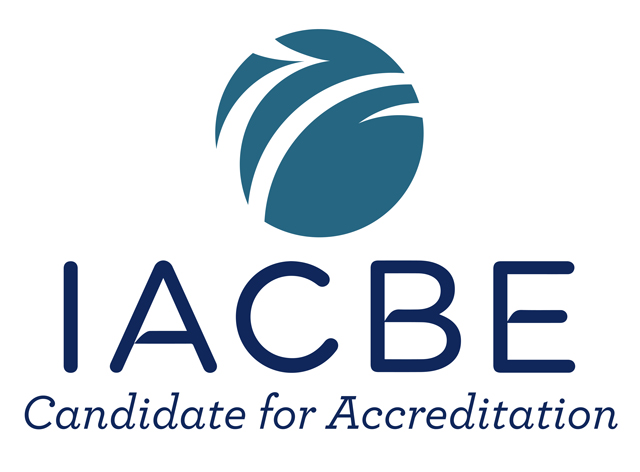Doctor of Philosophy in Management (PhD-M)
Program Overview
The Ph.D. in Management (Ph.D.-M) combines rigorous exploration at the intersection of theory and practice. The program will concentrate on research projects that have a high level of integration of best practices in management.
The Ph.D.-M Program will provide students with the knowledge and ability to think critically about the promotion of sustainable public and private sector development. It emphasizes research in many disciplines such as business models, leadership, accounting, finance, strategy, innovation and entrepreneurship, marketing, and human resource management. Its projects are directly related to the expertise of faculty members and those with possible funding sources for the project will have an increased likelihood of acceptance. The Ph.D.-M Admissions Committee will review proposals, plans, and applicants’ academic credentials to determine admission to the program.
Targeted Goals
There are five (5) targeted goals that the Ph.D.-M student must successfully complete to receive their degree:
- Preliminary Examination of the Thesis Proposal (Written and Oral).
- Proposal Seminar.
- Candidacy for the Ph.D.-M Degree.
- Thesis Preparation.
- Final Thesis Examination.
Dissertation
The final dissertation is an independent piece of work. It must be of high academic standards and contribute towards developing new academic knowledge regarding problem statements, the definition of concepts; methodological, theoretical, and empirical bases; documentation of findings; conclusions and limitations. A final Viva defence of your research and your knowledge of the academic area in which your research has been conducted with an assessment by internal and external academic experts in the field.
School Research Ethics Policy
Different programs have different levels and types of research activity where ethical issues arise; and as such, the University’s policy is to promote understanding and debate of the ethical dimensions of research, be it at the faculty, postgraduate, or undergraduate level. Additionally, to ensure that particular research initiatives are carefully and formally scrutinized and that ethical approval for them is granted or withheld. The student will need to take the research test. This can be accessed through Institutional Review Boards (IRB), and then gain IRB approval for any research-related activities before any research activities can begin.
Courses Offered
This Ph.D.-M Program is a zero-credit research-based program. However, candidates must register for their courses and complete each outlined research stage. Students may apply and be accepted for admission at any time during the St. George’s University (SGU) academic year (fall, spring, or summer terms).
Stage 1: Graduate Coursework (Year 1)
Term 1 – BUSI 8XX – 5 credits
Term 2 – BUSI 8XX – 5 credits
Term 3 – BUSI 8XX – 5 credits
Year 1 – Graduate Coursework – 15 credits of 800-level courses with 5 credits per term
Candidates need to take a combination of 800 courses which must include:
BUSI XXX – Research Design and Biostats
BUSI XXX – Authorship & Manuscript Preparation I
BUSI XXX – Research Methods and Data-Driven Decision Making
BUSI XXX – Research Ethics and Human Subjects
Additional course credits to be selected from the Graduate Studies course listing; to be agreed on by the Supervisor and Director of Graduate Programs.
Stage 2: Thesis Proposal Development (Year 2)
Term 4 – BUSI 9XX – 5 credits
Term 5 – BUSI 9XX – 5 credits
Term 6 – BUSI 9XX – 5 credits
Year 2 – Thesis proposal development – 15 credits of 900-level courses with 5 credits per term and an oral defence of the proposal at the end. This defence would constitute the progression to candidature for the Ph.D. degree. Candidates are strongly recommended to take: BUSI XXX – Research MSC Seminar Series
Stage 3: Progress Report (Year 3)
Term 7 – BUSI 9XX – 5 credits
Term 8 – BUSI 9XX – 5 credits
Term 9 – BUSI 9XX – 5 credits
Year 3 – Progress Report – 15 credits of 900-level courses with 5 credits per term
Stage 4: Final Thesis Presentation (Year 4)
Term 10 – BUSI 9XX – 5 credits
Term 11 – BUSI 9XX – 5 credits
Term 12 – BUSI 9XX – 5 credits
Year 4 – Final Thesis Presentation – 15 credits of 900-level courses with 5 credits per term
Total Credits is 60
Students may apply and be accepted for admission at any time during the St. George’s University (SGU) academic year (fall, spring, or summer terms).
Learning Outcomes
After completing the Ph.D. Program, students will have the following competencies:
- Broad conceptual knowledge of the discipline of management.
- Deep knowledge of a specific field within management.
- Responsible conduct of research and ethics.
- Leadership skills.
- Critical thinking skills.
- Research method skills.
- Communication skills.
- Computational skills.
Entry Requirements
The Ph.D. in Management Program is designed for university graduates in any field who have completed a Master’s level degree and who would like to pursue in-depth research in a management discipline.
Applications must be made through the SGU School of Graduate Studies. All requirements of the School of Graduate Studies and the Graduate Affairs Committee of the Department of Business and Management Studies must be met for acceptance into the program.
Admissions
Admission to the Ph.D. in Management Program will be based on the following:
- A Master’s Degree, in which students received a minimum grade point average (GPA) of 3.0 on a 4.0 scale.
- Two Letters of Recommendation.
- Proficiency in the English Language.
- A 1500-word preliminary Research Proposal.
- Applicants with a Graduate Record Examination (GRE) score would be considered an advantage.
- The preliminary research proposal must include an initial literature review of the research topic, a description of the research hypothesis and supporting models, a detailed research plan for the intended duration of the candidacy, and a justification of the research proposed.

